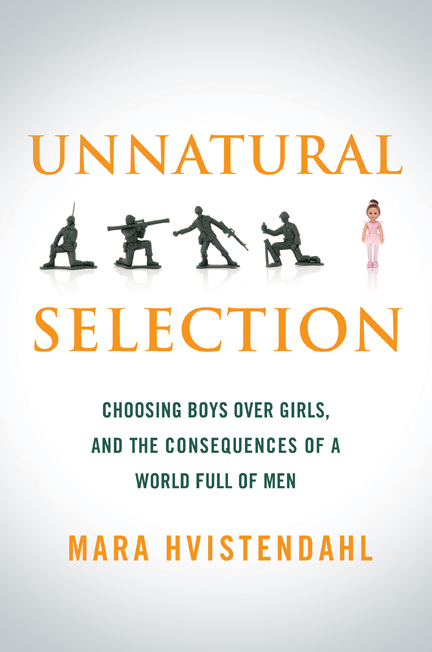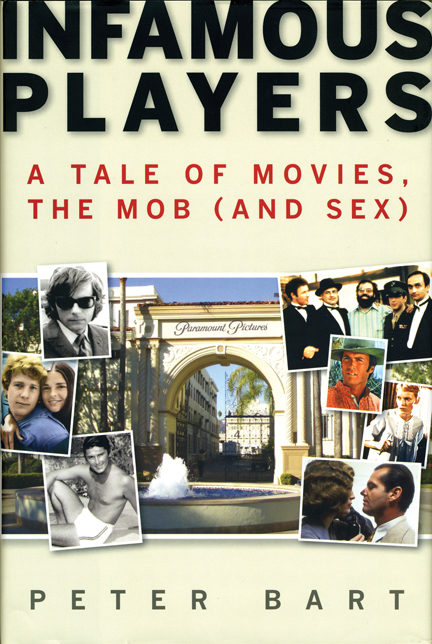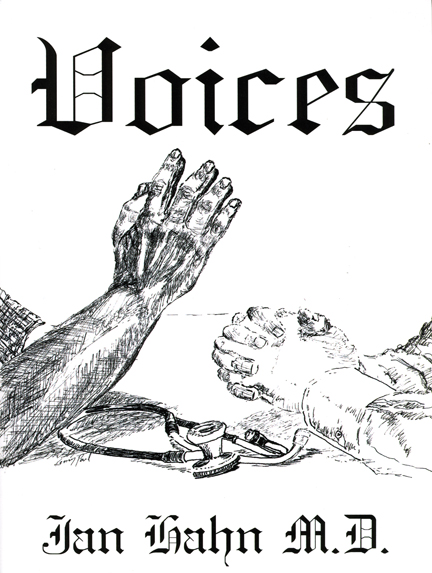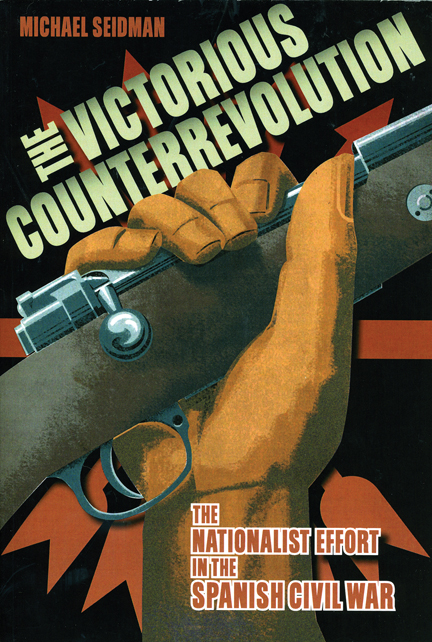160 Million Women “Gone Missing”
 Mara Hvistendahl ’02, Unnatural Selection: Choosing Boys Over Girls, and the Consequences of a World Full of Men (Public Affairs, New York) 2011.
Mara Hvistendahl ’02, Unnatural Selection: Choosing Boys Over Girls, and the Consequences of a World Full of Men (Public Affairs, New York) 2011.
Population control. Masculinization. Communism. Fertility. Human trafficking. Sex selection. Technology. Tradition. Imperialism. Demography. Abortion. Economics. All of these—and more—are brilliantly woven together by Mara Hvistendahl in her compelling exposé about the seemingly disconnected but ultimately intricately interwoven factors that contribute to a world with girls “going missing.”
“If 160 million women were missing from the U.S. population, you would notice—160 million is more than the entire female population of the United States,” writes Hvistendahl, who is currently a Beijing-based correspondent for Science magazine. (watch: Mara Hvistendahl discusses her book on campus.) Yet this is the number of potential girls and women who have already gone missing in Asia alone, due in large part, according to Hvistendahl, to the combination of ultrasound and abortion—technologies exported from the West over the past few decades.
Hvistendahl notes that a certain amount of gender imbalance appears to be natural; birth ratios historically weigh in at about 105 boys to every 100 girls. An unnatural balance, however, has been on the rise. The book reports that in the 1980s, South Korea, Taiwan, and parts of Singapore registered sex ratios at birth of 109 boys to 100 girls; currently, India has a ratio of 112:100 and China records 121 boys for every 100 girls.
Gender imbalance, moreover, is neither a local nor regional problem confined to South and East Asia. It reaches the Caucasus countries and Eastern Europe as well as some populations in the United States. It is a global issue. We are all facing an “epidemic” of gender imbalance, Hvistendahl says.
What are the causes of such imbalance? What are the consequences? And who is to blame? These are the questions addressed in Unnatural Selection.
Unsatisfied with conventional explanations for the imbalance that attribute it to “deeply-rooted cultural traditions” and “the low status of women in society,” Hvistendahl introduces Unnatural Selection as “a book about information that some had hoped to keep hidden, about misguided theorists focused only on the big picture and scientists with tunnel vision, and about population, technology, and abortion.”
The book exposes the incompleteness—even wrongheadedness—of looking only to traditional cultural prejudices for the cause of such imbalance at birth. Hvistendahl writes, “Tradition cannot be the whole explanation for a phenomenon that has only appeared in the past 30 years,” and her research compellingly exposes the links between—and the melding of—tradition and technology left underexposed if not altogether missed in much work on this topic.
The book’s three parts introduce the reader to important aspects of the issue through key figures and a narrative style that invites you into the story in a concrete and personal way. Part one, “Everyone Has Boys Now,” illustrates the nature of the problem from multiple angles including demographics, economics, politics, and the personal factors that contribute to “missing girls.” We learn that in many locations a “skewed sex ratio at birth was an outgrowth of economic progress, not backward traditions.”
Part two, “A Great Idea,” details the beginnings of sex-selection abortion—the “great idea” that the United States exported to other countries during the 1960s and 1970s, spurred largely by its own fears of overpopulation (and concomitantly Communism). We see the World Bank, the Ford Foundation, the Rockefeller Foundation, and the Planned Parenthood Federation of America all playing a part in advancing the dissemination of such technology in the name of “population control.”
(Hvistendahl notes the contrast between 1980s American politics and the seeming ease with which sex selection was championed not only for its presumed effectiveness at population control but also as “one of the most rational and ethical methods out there.” Given today’s political climate, her observation that “the list of abortion’s early champions reads like a directory of the Republican Party” is quite striking.)
Part three, “The Womanless World,” deals with the consequences of a global surplus of men: The “marriage squeeze” leads to a range of trafficking in women, from international brides for purchase, to prostitution, to forced marriage, to child marriage, etc. Some scholars think that a “masculinized” world may also lead to increased violence and social instability. Here Hvistendahl aptly navigates the rough terrain—well known from the beginnings of feminist theorizing—between essentialist and constructionist stances on gender differences.
Unnatural Selection is an eye-opening book, one that paints a vivid portrait of an important global issue. It makes it hard to look at gender, birth, politics, science, and technology—and their global knottiness—in the same way ever again.
—Gwynn Kessler
Assistant Professor of Religion
BOOKS
 Elizabeth Anderson ’81, The Imperative of Integration, Princeton University Press, 2010. Anderson demonstrates that despite the progress that has been made toward racial equality since 1964, African Americans remain disadvantaged. Through extensive social-science findings and political theory, the author provides a compelling argument in favor of reviving the ideal of racial integration to overcome injustice and inequality, exposing the deficiencies of racial views on both the right and the left, and exploring ways for integration to lead to a more responsive democracy.
Elizabeth Anderson ’81, The Imperative of Integration, Princeton University Press, 2010. Anderson demonstrates that despite the progress that has been made toward racial equality since 1964, African Americans remain disadvantaged. Through extensive social-science findings and political theory, the author provides a compelling argument in favor of reviving the ideal of racial integration to overcome injustice and inequality, exposing the deficiencies of racial views on both the right and the left, and exploring ways for integration to lead to a more responsive democracy.
Diana Bailey Harris ’64, Reflections of a Civil War Locomotive Engineer: A Ghost-Written Memoir, CreateSpace, 2011. This true story is based on long-forgotten letters that the author’s father found in a 100-year-old trove he discovered in 1988. From these letters, the author tells the story of John and Francis, brothers who served in the Civil War and went on to become, respectively, a locomotive engineer and a police officer. John recounts the events of their lives to find the secret to Francis’s happiness despite great personal tragedy.
Peter Bart ’54, Infamous Players: A Tale of Movies, The Mob (And Sex), Weinstein Books, 2011. Daily Variety editor Bart tells the story of his whirlwind experiences at Paramount as a studio executive in the late 1960s and early 1970s. This golden era for the studio also came with plenty of chaos and company turmoil—drugs, sex, runaway budgets, management infighting, and even the Mafia—making Paramount one of the most bizarre studios in all of movie industry history.
 Octavio Gonzalez ’97, The Book of Ours, Momotombo Press, 2009. Gonzalez chronicles his early life in the Dominican Republic and his move to New York City through a brave and memorable collection of poems. Using different moods and tones to convey an immigrant’s story, a gay man’s story, a Dominican’s story, a New York story, and many more, the author relates his painful personal history.
Octavio Gonzalez ’97, The Book of Ours, Momotombo Press, 2009. Gonzalez chronicles his early life in the Dominican Republic and his move to New York City through a brave and memorable collection of poems. Using different moods and tones to convey an immigrant’s story, a gay man’s story, a Dominican’s story, a New York story, and many more, the author relates his painful personal history.
Jan Hahn ’73, Voices, AuthorHouse, 2010. Physician Hahn has worked in big city emergency rooms, tertiary-care intensive care units, jails, an Indian hospital, a small rural hospital, nursing homes, and a small town medical office, listening to his patients’ stories. These moving poems chronicle the thoughts and feelings of men and women of all walks of life who try to cope with misfortunes and resolve the challenges confronting them, all with the same desire—to be heard.
Tony Holtzman ’55, Axton Landing, Cloud Splitter Press, 2011. In the harsh conditions of the Adirondack Mountains, disease and death stalk the lumberjacks in the winter of 1858. Cyrus Carter and Jared Mason forge a lasting friendship amidst the harsh conditions at their logging camp at Axton Landing. This action-packed novel displays all the dangers of the lumberjack lifestyle as well as the moral dilemma brought on by the arrival of a fugitive slave.
Michael Seidman ’72, The Victorious Counterrevolution: The Nationalist Effort in the Spanish Civil War, The University of Wisconsin Press, 2011. This book examines how General Francisco Franco maintained a highly repressive and tightly controlled regime that combined with pro-Catholic and anti-Jewish propaganda to manage the Spanish economy and reinforce solidarity in the Nationalist zone. By avoiding inflation and shortages of food and military supplies—and with the support of elites and middle-class Spaniards—the Spanish Nationalists achieved victory over the Spanish Republicans and the revolutionary Left.
OTHER MEDIA
Freebo (Daniel Friedberg) ’66, Something to Believe, Poppabo Music, 2011. The 11 songs in this selection—most by the artist with some co-written with co-producer and engineer Robert Tepper—take listeners along a path that is strewn with profundity, beauty, delight, amusement, and pathos. It's Freebo at his best.
—Capsule reviews by Lauren Weiler
 Email This Page
Email This Page

